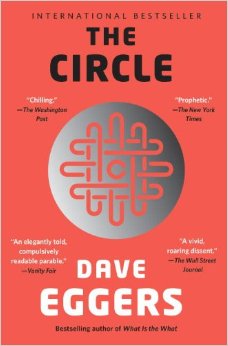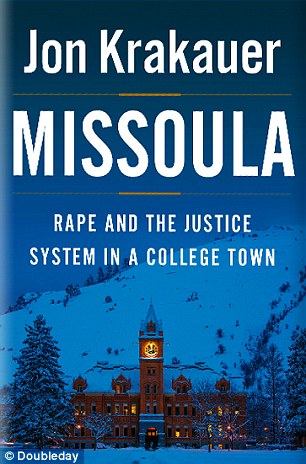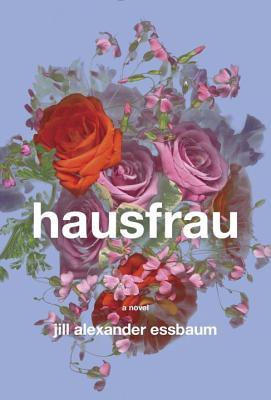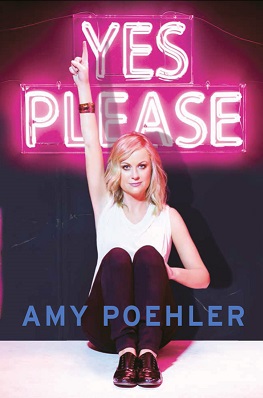Book review Friday: several quick takes
I’ve been doing a lot of reading ever since my lovely mother got me a Kindle Paperwhite in April. Its lit-up screen allows me to read in the dark while I’m feeding Lucia at night (or early in the morning) and want to keep her room dark so as not to wake her fully. With my old Kindle, I’d have to turn on the light to read, so I ended up playing on my iPhone and reading New Yorker articles on its tiny screen instead. Not awesome. Anyway, since my reading life has been restored to me, I’ve torn through a bunch of books, and thought I’d do some short reviews here while the baby is napping. One never knows how long one has when a baby is napping, so these will be short and sweet and probably not finely edited. Here we go!
The Circle, by Dave Eggers
I had high hopes for The Circle, mostly because Dave Eggers and his wife wrote the screenplay for Away We Go, one of my favorite movies, and because I’ve volunteered at 826DC, a great non-profit also spearheaded by Eggers. Unfortunately, The Circle was a big disappointment. Well, let me qualify that: I did enjoy the first 40% or so of the book, which consisted of some great world-building and suspense-building, but hated the last 60%, when the entire thing came crashing down in a pile of heavy-handed metaphor, unrealistic outcomes, and an increasingly irritating protagonist. There are so many problems with this book, and I think this reviewer on Goodreads ably summarizes most of them, but what irritated me most was the squandered potential the book had to be great. The set-up, in which Eggers introduces us to The Circle, a utopic, monolithic version of Google, Facebook, Twitter, and every other major tech/social media company in the Silicon Valley, was interesting in itself, and the idea that the heads of The Circle had secretive, nefarious plans had great potential for intrigue and suspense. But the plot ended up flopping majorly when it became a dull-edged warning about the dangers of intrusive social technology in our lives. Eggers doesn’t have anything new to say about the overuse of social media, unfortunately, and in trying to impart the oft-repeated message that it can be dangerous and dehumanizing, he relies on such ham-fisted, hackneyed metaphor that the book’s message comes across as obvious and trite. When I was done reading the book, I realized that I wanted to rewatch Charlie Brooker’s excellent, super creepy, and incisive TV series Black Mirror, which provides much smarter and more unique commentary about the creeping dangers of technology in society. In fact, that’s my recommendation: skip The Circle and check out Black Mirror (and don’t watch alone and/or at night — you’ll have nightmares).
Missoula, by Jon Krakauer
I’ve loved everything I’ve read by Krakauer (Into the Wild, Into Thin Air, Under the Banner of Heaven), and his latest effort, Missoula, did not disappoint. The book provides a thoughtful look at the serious problem of non-stranger rape, particularly on college campuses, and particularly at the University of Montana in Missoula. Krakauer examines several cases of non-stranger rape in the college town and the way they were handled, variously, by the university, the police, the prosecutors, the media, and the public. I read in an interview with Krakauer in which he said that he and his publishers decided to release the book early given the disastrous, poorly researched Rolling Stone article on the alleged rape culture at UVA, because Krakauer felt that his book would provide a much-needed counterpoint to the idea floating around post-Rolling Stone debacle that many women lie about being raped. In fact, Krakauer points out, most women do not lie about sexual assault, and most victims of non-stranger rape do not ever report the crimes. This book provides an eye-opening and moving account of a disturbing problem that does not get talked about often enough.
So You’ve Been Publicly Shamed, by Jon Ronson
It feels wrong to refer to a book about the devastating effects of internet shaming as a “confection,” but when I say that this book, like most of Ronson’s smart, wry work, is like a delicious piece of non-fiction fudge, I mean it in the best way. Ronson’s dry wit makes even the most serious and depressing of subjects, including the power of anonymous internet commenters to destroy strangers’ lives without so much as a backward glance, digestible and light. I tore through this book and loved every page of it. Granted, I am a giant Jon Ronson fan and will read anything he writes, but I think this is some of his best work. Highly entertaining but also chilling, this book will make you rethink that nasty Twitter post or forum comment you were about to dash off.
Hausfrau, by Jill Alexander Essbaum
I have mixed feelings about this novel, a dark tale about a bored, repressed American woman living with her Swiss husband and children in quaint, suburban Switzerland, and the ultimate consequences of her terrible decisions. I very much enjoyed the book’s strong sense of place and its sharp musings about Swiss culture. I enjoyed the deep character development. I enjoyed the sense of something dire lurking just around the corner. But when the Something(s) Dire finally happened, I ended up feeling deflated and depressed. The book became so heavy, so dark, so quickly, and offered no hope of a redemptive arc, that in the end I felt a bit cheated, or at least misled, by it. The writing is good, the story engaging, but the ending is a big bummer, and I’m not sure it served the story — or the characters — as well as the author seemed to think it did.
Yes Please, by Amy Poehler
Amy Poehler’s memoir is a quick, light read with quite a few laugh-out-loud passages. Poehler is a good writer and a smart person, and her book, while not particularly hefty or revealing, is a fun read. One feels that one knows Poehler much better after reading about her childhood, her early career in improv and then at Saturday Night Live, and a few dustups with famous people. She talks about her achievements as a female comedian and actress without ever veering into arrogance or Gwyneth-like cluelessness, and she comes across as a genuine person who has managed to keep a good head on her shoulders despite her enormous success.
As an added bonus, here are a few even shorter reviews of books I read so long ago I can’t remember plot details, necessarily, but can recall how I felt about them overall.
Descent, by Tim Johnston: I read a glowing review of this novel on NPR and was expecting great things. The book was good, if plodding at times, but not great. There were genuine moments of suspense that paid off very well toward the last quarter of the book, but there were also wide swaths of boring prose and side-story that I could have done without.
The Girl on the Train, by Paula Hawkins: This book has gotten a lot of buzz lately, and rightly so. An excellent, tightly constructed psychological thriller. Very, very good.
Station Eleven, by Emily St. John Mandel: I waited far too long to read this gorgeous book about the world after a devastating pandemic has drastically reduced the human population. The book is weird, and sad, with surprising, uplifting moments of beauty and lightness. It’s also one of the few books with descriptions of art that didn’t bore me to tears. Highly recommended.
Boy, Snow, Bird, by Helen Oyeyemi: I wanted to like this book, a unique spin on Snow White, more than I actually did. Interesting premise, good writing, but often boring.
The Damned, by Andrew Pyper: A friend whose taste I generally trust recommended this horror novel that takes place in the suburbs and city of Detroit. Unfortunately, despite the setting, I didn’t connect with Pyper’s writing. I found the style affected and distracting, particularly the author’s fondness for peppering his paragraphs with incomplete sentences, which I suppose were intended to provide dramatic heft, but came across as unpolished and trying too hard. I’m such a stickler for good writing in the novels I read that I couldn’t get past the author’s style and ended up not enjoying this book much at all, even though its premise — a man being haunted by the ghost of his malevolent sister — had potential.
Deep Down Dark, by Héctor Tobar: A fascinating look at the ordeal of the 33 Chilean miners who were trapped underground for months and the highly technical rescue operation that finally extricated them. Some of the technical aspects of the rescue were lost on me, but the human stories of the men trapped below the earth were touching and engaging.
Whew, okay! That’s all for now. If you’ve read any of these, let me know what you think! I welcome a lively book chat any time! Especially when the baby’s asleep.





1 Comment-
Pingback: Great reads, good reads, meh reads, and bad reads: a book round-up | Stephanie Early Green